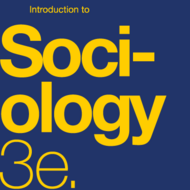
(View Complete Item Description)
This is an online course in experimentation as a method of the empirical social sciences, directed at science newcomers and undergrads. We cover topics such as:
- How do we know what’s true?
- How can one recognize false conclusions?
- What is an experiment?
- What are experiments good for, and what can we learn from them?
- What makes a good experiment and how can I make a good experiment?
The aim of the course is to illustrate the principles of experimental insight. We also discuss why experiments are the gold standard in empirical social sciences and how a basic understanding of experimentation can also help us deal with questions in everyday life.
But it is not only exciting research questions and clever experimental set-ups that are needed for experiments to really work well. Experiments and the knowledge gained from them should be as freely accessible and transparent as possible, regardless of the context. Only then can other thinkers and experimenters check whether the results can be reproduced. And only then can other thinkers and experimenters build their own experiments on reliable original work. This is why the online course Open for Insight also discusses how experiments and the findings derived can be developed and communicated openly and transparently.
Material Type:
Full Course
Author:
Rima-Maria Rahal




















